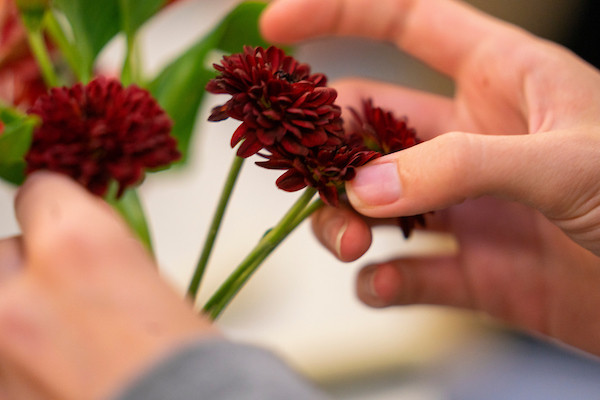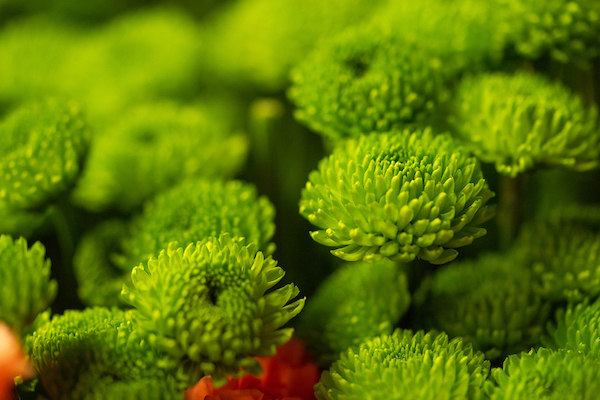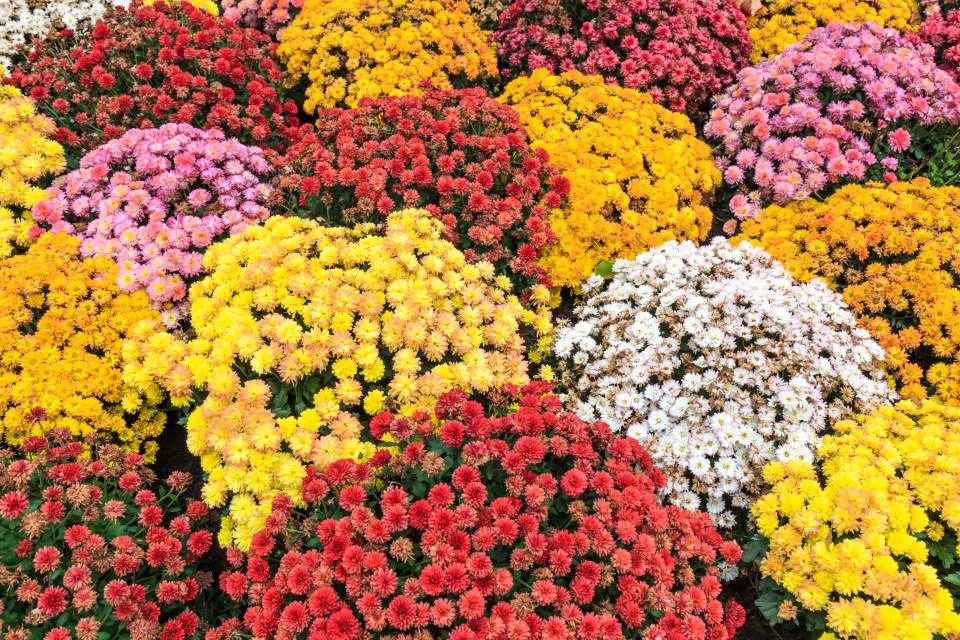10 quick tips to help your mums survive and thrive
What to look for, how to care for fall-favorite flower
It’s hard to resist buying mums this time of year. The plants have flowers in striking autumn hues and are available everywhere from local markets and nurseries to big box stores, which make them a fall favorite for porches and yards.
The chrysanthemum, or “mum” as it’s more commonly known, epitomizes autumn for many people, and for many Texans is as much a part of their fall décor as a jack-o-lantern or hay bale.
Andrew King, Ph.D., Texas A&M AgriLife Research ornamental specialist and assistant professor in the Texas A&M Department of Horticultural Sciences in Overton, shared his top tips for buying and caring for mums.
“I come from a nursery background and have grown and sold my fair share of mums,” he said. “Given the abundance of them this time of year, many people assume they are an easy plant to select and care for, but that’s not always true. These tips will help you get the most out of your mums.”
Buy now for best selection
The further into the season we go, the fewer varieties and options will be available, especially if there is a specific color or size you are looking for. Buy it when you find it. It’s fine to wait a few weeks after they’re available, but don’t wait beyond that.
Not all mums are created equal
The type of mum you buy for a patio isn’t the same type that will grow the best in your garden. Make sure you are buying plants that are suited to their intended purpose. Most mums available now are decorative, but if you want plants that will thrive in the ground as a perennial it’s best to go to a nursery and ask for help to pick the right type.
Buy before it blooms

Unless you want blooms immediately, buy mums with a heavy load of unopened buds. Look for nice, tight flower buds. It’s fine if you see a little color on a few buds, plus that will help ensure you are purchasing the color you want. Closed buds will start typically opening within one to two weeks.
Visual signs of mums to avoid
Avoid any plant without buds. That could indicate the plant was mismanaged or may have another issue. Also avoid any plants with leaves showing a yellow tinge or branches that look spindly. Mum plants with a compact shape are best.
Too much of a good thing is bad
Too little water will kill mums, but too much moisture is just as bad. Incorrect watering is the No. 1 killer of mums. Stick the tip of your finger in the soil, and only water when you don’t feel some moisture.
Drainage is a must
Whether you keep them in the container they came in or repot them into another planter, drainage is key. Their roots are sensitive to too much moisture and can easily become waterlogged. They need oxygen and well-drained soil lets them breath.
Mums love the sun
It’s important to ease mums into a shady spot if they come from a nursery or store where they were in full sun. A plant that was in full sun will not do well being immediately put in shade. If you want to place your potted mums in a very shady spot, you may need to move them into a sunnier area every few days.
Mums hate extreme temperatures

Mums love temperatures in the 60s and 70s. If temperatures rise into the 90s and beyond, place them in a spot where they get some shade during the heat of the day. On the other end of the spectrum, bring plants inside your home or garage if you see freezing temperatures in the forecast.
Mums like room to grow
It’s not necessary if you’re using the plant as a short-term fall or winter decorative plant, but you may want to repot your mum if you plan to keep it. Plants that seem too big for their containers may be rootbound and will appreciate having more room to grow. If you do repot your plant, use a rich soil that is peat-based.
Deadhead for max blooms
To maximize the number of blooms and growth you’ll get, make sure you deadhead any flowers that are fading. Simply pinch off the dead flower heads, which will often provide a second round of blooms from new buds before their season ends.






